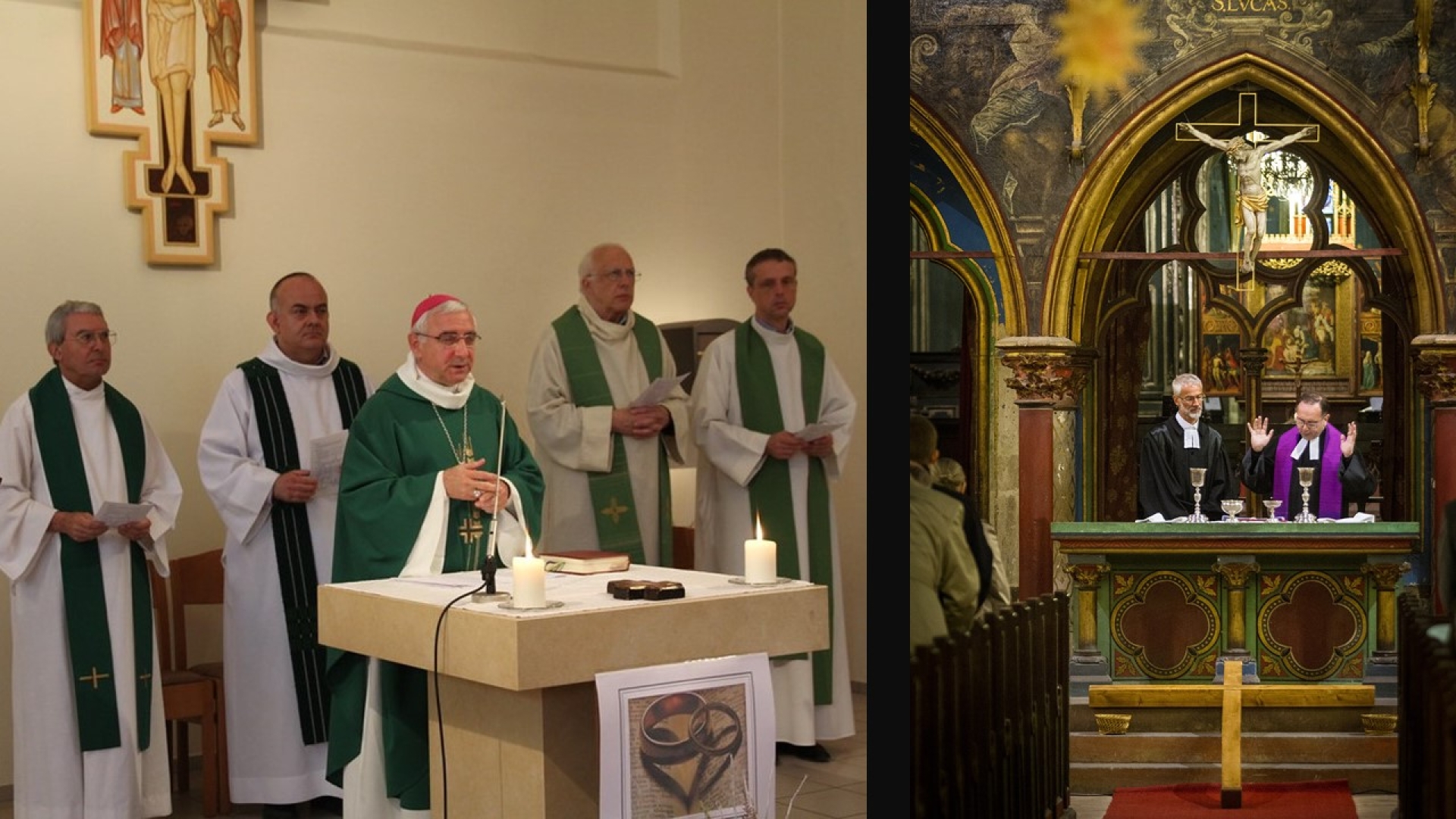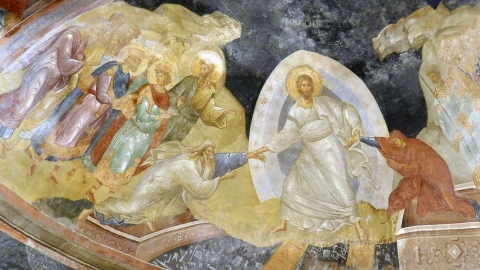Germany: Discussions on “The Lord’s Supper in Common” Continue

Une messe « novus ordo » et une cène protestante.
Ignoring the update made on September 18, 2020 by the Congregation for the Doctrine of the Faith (CDF), the German Bishops’ Conference (DBK) plans to continue its discussions with the Council of the Evangelical Church on the topic of intercommunion.
German bishops tend not to be able to hear what is said to them very well when the voice is coming from Rome, and this disposition unfortunately is not new. It has been reported how a joint working group - Evangelical and Catholic theologians, the ÖAK - wanted to achieve intercommunion, or “mutual participation in the celebration of the Last Supper or the Eucharist.” Things were black and white in a September 2019 document.
German bishops had given their support in January of this year, before a first Roman warning. This did not stopped the new president of the DBK, Bishop Georg Bätzing, from welcoming the document at the spring meeting of the German episcopate in March.
Last September 3, Mgr. Bätzing confirmed the plans to hold the third ecumenical Catholic-Protestant congress in 2021. He warned that intercommunion would be practiced on this occasion. The fall meeting of the DBK, still held at the end of September in Fulda, was to endorse it.
But on September 18, the Congregation for the Doctrine of the Faith warned the German episcopate in a letter addressed to Bishop Bätzing. Cardinal Luis Ladaria recalled that the differences between Catholics and Protestants over the Eucharist were so great that they excluded any joint participation in Mass or the Last Supper.
DBK had to take this into account. The bishops considered this letter when they met in Fulda. When presenting the results, Bishop Bätzing stated that the matter was in the hands of a committee. To quietly bury the case?
A maneuver that looks like duplicity
But in a joint statement from the DBK and the Evangelical Church, dated October 6, 2020, the Catholic and Protestant authorities gave the impression of wanting to circumvent the Roman obstacle.
Of course, there will not be - at least immediately - active participation in common religious services. But the press release insists on the “urgent desire of Christians to express their solidarity in mutual participation in the Eucharist and the Lord’s Supper.”
In addition, in view of the Third Ecumenical Congress in Frankfurt am Main to be held in 2021, it has been stated that “the desire for reciprocal participation in the Eucharist and the Last Supper will develop its own dynamic,” in particular by “clarifying questions treated by Catholics and Protestants in different ways.” This clarification is often purely practical, with a number of priests and pastors quietly practicing what has been prohibited.
While this stubborn obstinacy is to blame, it must be recognized that the signals from Rome were not always clear. Thus, in May 2018, the Holy See congratulated the bishops of Germany for their ecumenical commitment, and directing them to continue to work together to find a broader consensus on the guidelines allowing a Protestant married to a Catholic to receive the Eucharist.
Finally, one can also understand that the priests formed entirely in the Novus Ordo no longer have very clear ideas about what really is the Holy Sacrifice of the Mass. The ceremony they are celebrating may seem close enough to the Protestant Supper that they don’t have much hesitation in switching from one to the other.
(Sources : Die Tagepost/National Catholic Reporter – FSSPX.Actualités)
Illustration de gauche : Eglise catholique en Brabant (CC BY-NC-SA 2.0)
Illustration de droite : Claude Truong-Ngoc / Wikimedia Commons - cc-by-sa-3.0, CC BY-SA 3.0, via Wikimedia Commons





